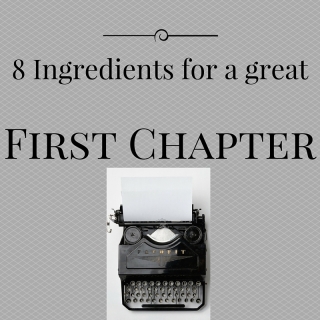Recently, I was in the midst of prepping for a first chapter contest for an upcoming writing conference I’m attending. Not only is this a stressful process, but I was also working on my first ever fiction chapter, crossing over from my usual nonfiction writing. (Pretty much no idea what I am doing, other than copying what I’ve seen accomplished in other books I’ve loved.)
In a super fun twist, I’m part of a “first chapter support group” specifically geared toward conference attendees entering the same contest where we each take turns critiquing each other’s chapters and receiving feedback on our own (and checking out the competition–kidding! Sort of.). The goal is to make that first chapter shine in a clear, concise, and creative way. We not only learn from the feedback of our peers, but also by reading and critiquing other chapters. We can see what works and what doesn’t. (Side note: The best part of this group last year, was when they announced the winners, we knew the names called and could be all the more happy and excited for them. Seriously. The. BEST.) (Another side note: you should start a group like this or locate one if you ever find yourself in a first chapter contest.)
Since everyone is on their own writing journey, we all have things we have not yet learned and others we may be fully schooled in. Strengths and weaknesses. Stuff we can learn from other’s feedback as well as from reading chapters written by someone else. I am not claiming to be an expert in any sort of way, but here’s my best attempt at first chapter lessons I’ve learned.
Ingredients for a great first chapter:
1. A great hook. The hook is the part of the book–usually within the first sentence or at least paragraph–that grabs the reader’s attention; the part that gets them to keep reading. The “whoa, what the heck is going on here?” or the “that’s really interesting; I want to know more” or the “HAHA, now that’s funny.” Something that propels the reader into the story and makes them want to keep turning pages.
2. Main character. We need to know who your main character is and have a good reason to root for him/her/it. Why should we want the main character to succeed? Also, it’s a great idea to have some idea what the character looks like, but without going to the mirror to describe him/her. 🙂
3. Motivation. What does your MC want? What is/are the obstacle(s) in his/her way? We don’t have to know everything at this point, but we do need to have an idea of what.
4. Description, but don’t overdo it! We need to know where your MC is so we can set the scene. Think of the five senses–what does your MC hear? Touch? Taste? Smell? See? How does your MC feel? And, as always, SHOW US! Don’t tell us.
5. POV and past or present tense. Is your book in 1st or 3rd person? (Or, in some NF, it may be 2nd person.) It doesn’t matter too much in general, but it does need to be consistent. Same with your tense. Don’t flip-flop between past and present tense. It’s confusing.
6. Build interest. Besides having a strong hook at the first of your chapter, you need to keep your readers hooked–give them a reason to read beyond your first chapter. If at the end of the chapter, your readers don’t care about the MC and have no idea where the book is going, they’ll likely stop reading. And that’s bad. We want our readers to stay interested and want to read one more chapter at 3 a.m. even though they have work, school, or other responsibilities in a few hours (sorry, not sorry!).
7. Voice. I really have no idea how to describe this, but it’s important. It’s the author’s unique way of telling the story. I guess it’s similar to tone, in a way. (Please go find something that describes this better than me. LOL.)
8. Promises, promises. In the first chapter, you, the author, make promises to your reader. For instance, if you’re writing romance, you’re making a promise that there’s going to be love at the end. There will obviously be struggles on the way to get to that love, but we have to encourage the reader to take that journey with us. It’s super frustrating to get to the end of a book and not have the promise fulfilled, right? So don’t make promises you don’t intend to keep or can’t keep (like that lame season of The Bachelor where the bachelor picked none of the girls…uh…broken promises and lots of mad fans!)
Basically, through the first chapter and the rest of the book, we need to see the character and the plot moving forward toward the goal with obstacles in the way. Don’t put in fluff and don’t make the answers to problems be convenient. Readers don’t like it when they are led through an unsatisfying plot with holes and things that work out for no other reason than the author wrote it that way.
What are your first chapter tips?
Wendy Jessen is the author of more than 300 articles—book reviews as well as family-oriented articles on familyshare.com . She somehow manages to do that with 6 spirited children ranging in age from 4 to 13 under toe. In the throes of writing her first book, she finds ways to procrastinate which usually involves scrolling through social media. Wendy often stays up way past her bedtime reading YA or other fiction. She loves kid-free date night with her husband, family vacations, and kids’ bedtime, aka, the human version of whack-a-mole.



This is excellent! And comes at a time when I need to analyse my first chapter. Thanks!!!
LikeLike